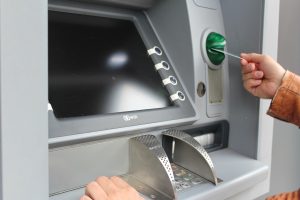If You Hear This, You’re Talking to a Tax Scammer
It’s tax season, and the scammers are at it again! Beat them at their game by knowing what to look out for. If you hear or see any of the following lines this tax season, you’re dealing with a scammer:
1. “We’re calling from the IRS to inform you that your identity has been stolen and you need to buy gift cards to fix it.”
If your identity has indeed been stolen, no amount of purchased gift cards will get it back.
2. “You owe tax money. We’ll arrest you, unless you buy iTunes gift cards.”
In this ruse, the scammer will also ask for the access numbers to the iTunes card to get easy and untraceable access to cash.
3. “If you don’t pay your tax bill now, we’ll cancel your Social Security number.”
Your Social Security number cannot be canceled, suspended, frozen or blocked.
4. “We’re calling you about a tax bill you’ve never heard about.”
The IRS will never initiate contact about an overdue tax bill by phone.
5. “This is the Bureau of Tax Enforcement. We’re putting a lien or levy on your assets.”
Sounds scary, except for the fact that the Bureau of Tax Enforcement isn’t real.
6. “This is a pre-recorded message from the IRS. If you don’t call us back, you’ll be arrested.”
Scam alert: The IRS does not leave pre-recorded voicemails to individual taxpayers.
7. “You must make an immediate payment over the phone, using our chosen method.”
The IRS says that agents will never call to demand immediate payment using a specific method.
8. “Click here for more details about your tax refund.”
The IRS will never send emails with information about tax refunds. Clicking on the link in emails worded like this will put malware on the victim’s device.
9. “You owe the federal student tax.”
The federal student tax is yet another invention of tireless scammers.
10. “This is an SMS/social media post from the IRS. We need more information.”
The IRS doesn’t initiate contact with taxpayers, or ask for sensitive information, via text message or social media.
Stay alert during tax season and keep your money and your information safe!








